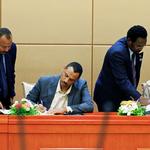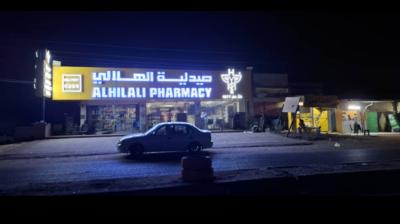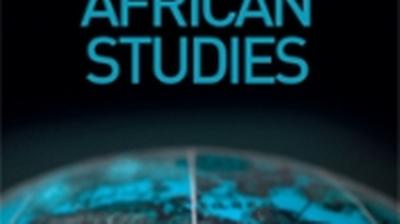Blog from Sudan: The Sudanese Revolution: A fight for LGBTQI+ Rights?
From the very beginning, the Sudanese revolution’s slogan, freedom, peace and justice, encouraged people from different backgrounds to participate in the protests to oust the President and his supporters. When Sudanese citizens who have been oppressed for three decades unified and rallied for political change, it created a hope for the future of a new and inclusive Sudan. Marginalized groups felt that, for the first time, a protest movement represented them as well. But how inclusive is the Sudanese revolution? Were representatives from the LGBTQI+ community welcome to take part?
Being part of Sudan’s LGBTQI+ community myself, I very much feel that the portrayal of unity and inclusiveness in both international, regional and local new media, and even by the Sudanese society itself, has been somewhat exaggerated.
In Sudan, the Islamist regime has viewed homosexuality as a crime against God. Loving a person of the same sex is punishable by death, according to the country’s criminal law from 1991. Even though the death penalty has not been enforced, there is a huge risk of being harassed and arrested by the public order police for breaking the country’s public order or morality laws that regulate every aspect of human behavior down to what you wear. In 2010, the public order police raided a private party where the guests celebrated the informal wedding between two homosexual men in Khartoum. Several of the guests were reportedly cross-dressing, something which is condemned in Sudan. They were charged with breaking public morality by wearing feminine clothes, using make-up and dancing in a womanly fashion. 19 of the attendees were flogged publicly with 30 lashes and fined.
The LGBTQI+ community has never been recognized in Sudan and is still to a great extent denied any form of rights to freedom, peace and justice. Because of your sexual orientation or gender identity, you risk being denied access to health services and education, to lose your job and being subject to hate crimes. This is part of your everyday life as a LGBTQI+ persons in Sudan. The burden is even harder for LGBTQI+ persons who are women, of dominant African descent and belonging to a religious minority as these groups have been targeted by the regime we are now protesting against.
With all this discrimination and stigma surrounding the LGBTQI+ community in Sudan and with the possible wave of change happening in Sudan now, will the LGBTQI+ community find a safe space within the revolution? And what role did they play in it?
As a Queer Sudanese I participated in the Khartoum protests from they began on December 21 last year. I made sure to go to each and every protest. I saw it as a huge opportunity for positive change. This was not the first time the Sudanese took to the streets to protest against the regime. There were big uprisings in 2013. Yet, to me, this time it felt different. This time around, I was more aware of the injustices happening in Sudan, and of the discrimination faced by the LGBTQI+ community. I looked at the revolution as a possible turning point for human rights and in LGBTQI+ rights in particular, inspired by the positive developments in Tunisia and South Africa where there has been a strong representation and visibility for the LGBTQI+ community that has led to them to demand and gain more space.
I have had many conversations with other members of the LGBTQI+ community for the past months of the revolution, about what their hopes are, what opportunities they see and if this really is a chance to make our voices heard. And the opinions are about just as many as the conversations. What we have in common is that we all took to the streets fighting for better life conditions and respect for human rights. Many feel, just like I do, that this is an important time to demand rights. We suffer stigma and discrimination, and the very cornerstone of this revolution is the demand for peace, freedom and justice, so it should also give us an opportunity to be treated with respect and live in peace. Yet, everyone has a different idea of the most effective strategy.
Some argue that rather than fore fronting LGBTQI+ rights, it is better to develop strong alliances with civil society organizations and political parties that can push to abolish the death penalty for homosexuality public order laws that target LGBTQI+ persons.
Joining forces with for example the women’s movement in demanding basic human rights could be a less risky approach in a society that is both socially, culturally, religiously and politically prejudiced against homosexuality. The women’s movement share the same interest in eradicating the public order laws, and their cause is more easily acceptable for many Sudanese. But joining forces with them is not necessarily going to be easy. Many women’s rights defenders and human rights defenders in Sudan are very conservative when it comes to the LGBTQI+ community, and homophobic attitudes are widespread even within those groups. Still, working from below, advocating for issues that will ultimately also benefit the LGBTQI+ community is the preferred choice for many.
Others argue that this is not the time to rally for LGBTQI+ rights, because this is not what it is about this time around. They say that they did not participate in the protests as LGBTQI+ persons, but as Sudanese looking for change.
Then there are the ones who believe that even though this is not the time to push for change in LGBTQI+ rights, we should still at least document our participation so that when it finally is the right time to have a conversation about our rights, we can prove that we have been an active part of the Sudanese society from the beginning.
Part of this conversation and participation is documented on social media platforms. Especially on Twitter many LGBTQI+ persons and LGBTQI+ rights groups started sharing their demands during the revolution. Social media became an arena for sharing our struggles and stating that we want to feel safe and part of the Sudanese society, that we want to be respected and that we want to be protected from institutional and social discrimination.
One of few current active advocacy groups, Shades of Ebony, posted statements supporting the revolution and sharing their demands and thoughts on how the LGBTQI+ community is part of the demands raised by the whole nation. Twitter accounts such as @Sudan_voices which has more than 40 000 followers featured a discussion about the LGBTQI+ rights as part of the revolution. Individuals like Ahmed Umar, an openly gay Sudanese Artist who lives in Norway, initiated discussions about what it means to be an LGBTQI+ person in Sudan, and many others took part in discussions on social media about being queer and how they perceived the revolution. The messages were very clear: We are part of this country, society and revolution, and as LGBTQI+ individuals we want to be included, considered and respected. It is our right to have freedom, to live in peace and to be treated with justice.
There have also been interesting articles written on the topic of visibility and rights, such as “LGBTQI+ coming out of Sudan” in words magazine https://500wordsmag.com/social/lgbtq-coming-out-of-sudan/
But regardless of what happens in social media, the situation on the ground is very different. The Sudanese LGBTQI+ community still worries about being identified as being LGBTQI+ in public , including at protests and sit-ins. There is a real danger of being harassed or attacked.
The fight for equal rights, citizenship rights and acceptance, and the importance of diversity is still very much ongoing in Sudan. The LGBTQI+ community is trying to prove ourselves and to demand our rights unapologetically. My hope is that with a civilian government we can have safe spaces to share our stories in, and to be visible without fear of being attacked by the state.
Hamada, Khartoum, May 7
This Blog from Sudan is part of the Assisting Regional Universities in Sudan project (ARUS).







